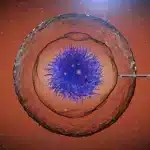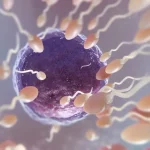
Egg donation is a generous act that can help couples and individuals achieve their dream of starting a family. However, despite its growing prevalence, many misconceptions and misunderstandings persist about the process. This article aims to clarify the top things you need to know about egg donation by debunking common myths and presenting the realities.
Understanding Egg Donation
Egg donation involves a donor providing one or several eggs to an intended recipient to assist with conception. This process can be a crucial option for women who are unable to conceive using their own eggs due to various reasons such as age, ovarian failure, genetic conditions, or previous medical treatments like chemotherapy.
The Process of Egg Donation
Initial Screening and Selection
Before becoming an egg donor, candidates undergo a rigorous screening process. This includes:
- Medical Evaluation: Comprehensive health assessments to ensure the donor is in good health.
- Genetic Screening: Tests to rule out any hereditary diseases.
- Psychological Evaluation: Mental health assessments to ensure the donor is mentally prepared for the process and understands the implications.
Ovarian Stimulation and Monitoring
Once approved, the donor undergoes ovarian stimulation. This involves:
- Hormonal Injections: Donors receive hormone injections for about 10-14 days to stimulate the ovaries to produce multiple eggs.
- Monitoring: Regular blood tests and ultrasounds are conducted to monitor the donor’s response to the hormones.
Egg Retrieval
The final step is the egg retrieval procedure:
- Outpatient Procedure: Eggs are retrieved through a minor surgical procedure called transvaginal ultrasound aspiration.
- Anesthesia: The procedure is performed under sedation or light anesthesia to minimize discomfort.
Myths and Realities About Egg Donation
Myth 1: Egg Donation is Extremely Painful
Reality: The idea that egg donation is a highly painful process is a common myth. While the hormone injections might cause mild discomfort and bloating, the egg retrieval procedure itself is conducted under anesthesia, ensuring the donor feels minimal pain. Post-procedure, donors might experience some cramping and soreness, similar to menstrual cramps, which typically subside within a few days.
Myth 2: Egg Donation Causes Infertility
Reality: Another widespread myth is that donating eggs can lead to future infertility. In reality, egg donation does not deplete a woman’s egg reserve in a way that affects her fertility. Women are born with approximately one to two million eggs, and only a small fraction of these eggs are recruited for donation during the process. Studies have shown that egg donation has no long-term impact on a donor’s ability to conceive later in life.
Myth 3: Only Young Women Can Donate Eggs
Reality: While it is true that fertility clinics often prefer younger donors, typically between the ages of 21 and 35, this does not mean that only very young women can donate. The primary reason for this age preference is the higher quality and quantity of eggs produced by younger women. However, women in their late 30s can still be eligible if they meet other health criteria and pass the screening process.
Myth 4: Egg Donors Have No Legal Rights or Protections
Reality: Egg donation is a highly regulated process with legal agreements in place to protect both the donor and the recipient. Donors are required to sign contracts that outline their rights and responsibilities, ensuring they are fully informed and consenting participants. Additionally, confidentiality is maintained to protect the privacy of all parties involved.
Myth 5: Donors Are Only Motivated by Money
Reality: While financial compensation is a factor for many donors, it is not the sole motivation. Many donors are driven by the desire to help others achieve their dream of parenthood. The decision to donate eggs is often made after careful consideration and a genuine wish to contribute to someone else’s happiness.
Benefits of Egg Donation
For Donors
- Emotional Satisfaction: Many donors find the process emotionally rewarding, knowing they have helped someone start a family.
- Financial Compensation: Donors receive compensation for their time and effort, which can be used for personal or educational expenses.
- Comprehensive Health Check: The thorough medical evaluations can provide valuable insights into the donor’s health.
For Recipients
- Increased Chance of Conception: Egg donation significantly increases the chances of conception for individuals who cannot conceive with their own eggs.
- Genetic Screening: Donors are carefully screened, reducing the risk of genetic disorders.
Risks and Considerations
For Donors
- Physical Risks: As with any medical procedure, there are risks, including ovarian hyperstimulation syndrome (OHSS), infection, or bleeding. However, these are relatively rare.
- Emotional Impact: The psychological impact of donating eggs can vary. Donors need to have access to counseling and support throughout the process.
For Recipients
- Emotional Considerations: Recipients may face emotional and ethical considerations, such as explaining the child’s conception story.
- Financial Cost: The process can be expensive, involving medical, legal, and agency fees.
Frequently Asked Questions (FAQs)
Q: What is egg donation?
A: Egg donation is when a woman donates her eggs to help another individual or couple conceive.
Q: Is egg donation painful?
A: The procedure involves mild discomfort from hormone injections and minor soreness post-retrieval, but it’s generally well-tolerated.
Q: Can egg donation cause infertility?
A: No, egg donation does not impact long-term fertility.
Q: Who can donate eggs?
A: Typically, women aged 21-35 in good health can donate.
Q: Are egg donors compensated?
A: Yes, donors receive financial compensation for their time and effort.
Conclusion
Egg donation is a remarkable process that offers hope to many individuals and couples struggling with infertility. By debunking the myths and understanding the realities, potential donors and recipients can make informed decisions. It is a process that requires careful consideration, but the rewards—both emotional and practical—can be profound.
If you are considering egg donation, either as a donor or a recipient, it is crucial to consult with a reputable fertility clinic to understand all aspects of the process. With the right information and support, egg donation can be a fulfilling and life-changing experience for all parties involved.
Should you have any questions or concerns, please do not hesitate to contact us at 212-661-7177 or info@eggdonors4all.com.

Dr. Kulsoom Baloch
Dr. Kulsoom Baloch is a dedicated donor coordinator at Indian Egg Donors, leveraging her extensive background in medicine and public health. She holds an MBBS from Ziauddin University, Pakistan, and an MPH from Hofstra University, New York. With three years of clinical experience at prominent hospitals in Karachi, Pakistan, Dr. Baloch has honed her skills in patient care and medical research.










